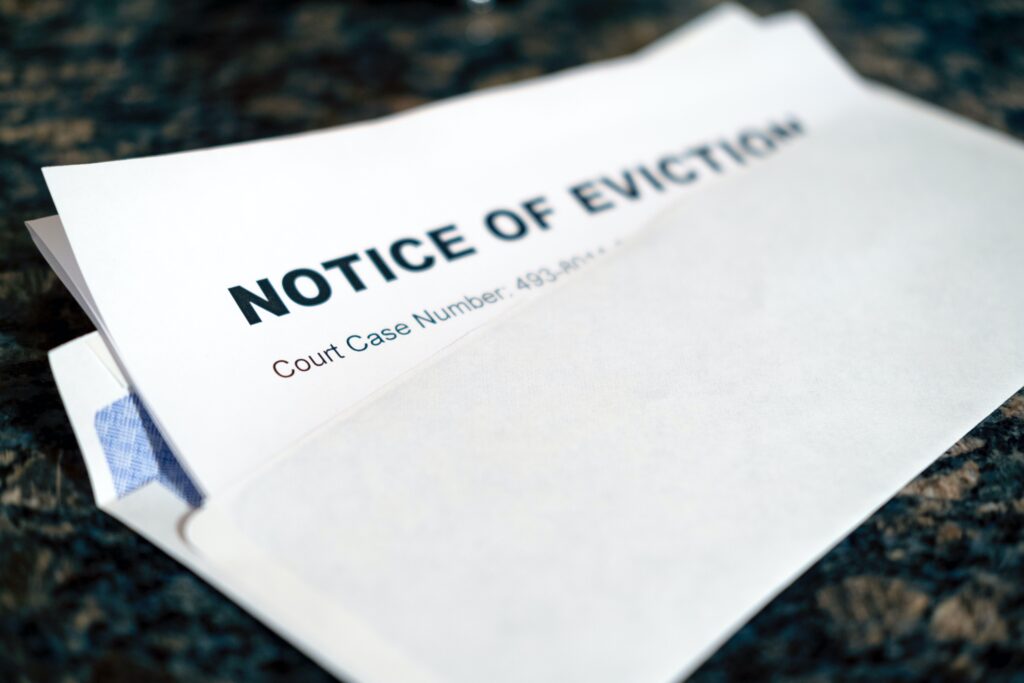The Renters’ Rights Bill is set to deliver the biggest overhaul of private renting in decades. If you’re a landlord planning ahead or a tenant keen on your upcoming protections, this guide spells it out, including when the bill turns into law.
In this guide, you’ll learn:
- Exactly when the Renters’ Rights Bill will become law.
- The new ways to evict under Section 8.
- How tenants gain stronger safeguards.
- What landlords need to do to keep on the right side of the rules.
- What’s next for rental reforms in the UK.
The Most Likely Timeline: When Will the Renters’ Rights Bill Become Law?
Short answer: Royal Assent could come by late July 2025, but the key changes likely won’t kick in until October 2025 at the earliest – or possibly January 2026.
Here’s the current rollout based on the bill’s progress:
Royal Assent (when the bill becomes law):
- Target: Late July 2025, if it clears the final hurdles before Parliament’s summer recess on 22 July.
- But if amendments send it back to the Commons for ping-pong, it could slip to September 2025 when Parliament returns.
Commencement Date (when the law starts applying):
- The Government has pledged at least six months’ notice before major changes like the Section 21 ban.
- Likely start: October 2025 to January 2026.
- From then, no new Section 21 notices can be issued.
Key milestone summary:
| Date | What Happens |
|---|---|
| 22 April–15 May 2025 | House of Lords Committee Stage (completed) |
| 1, 7, and 15 July 2025 | Report Stage in the Lords (completed on 15 July) |
| 21 July 2025 | 3rd Reading in the Lords |
| Late July 2025 (or September if delayed) | Royal Assent |
| October 2025–January 2026 | Section 21 ban and other key changes come into force |
Pro tip: The House of Lords has been debating amendments right up to 15 July 2025, but they can’t block it outright – especially as it’s a Labour manifesto commitment with solid backing. Keep an eye on the official Parliament page for updates: https://bills.parliament.uk/bills/3764.
The End of Section 21: What It Really Means
Section 21 let landlords end tenancies without giving a reason – usually with two months’ notice. That easy option is vanishing for good.
Under the Renters’ Rights Bill:
- All new tenancies after commencement will follow the new rules: no fixed terms, no Section 21.
- Existing tenancies shift to periodic ones about a year later, likely mid-to-late 2026.
- After that, Section 8 becomes the sole way to reclaim possession.
This isn’t mere paperwork shuffle.
It’s a real power shift – tenants won’t face random eviction, but landlords can still step in when needed, though it’ll take more proof.
Understanding the New Eviction Path: Section 8 Grounds
Without Section 21, landlords turn to Section 8 – proving a solid reason for possession. The reforms beef up Section 8 and introduce fresh grounds.
Mandatory Grounds (Court must grant possession if proven):
- Selling the property – Must prove genuine intent and not re-let for a set period (recent amendments shortened this from 3 months in some cases; check latest at https://hansard.parliament.uk/Lords/2025-07-15/debates/2932690F-2DA6-49B8-80C1-6D17CDE9BCE0/Renters%25E2%2580%2599RightsBill).
- Landlord or family moving in – Now covers more relatives.
- Repeated serious rent arrears – Even if paid off later.
- Current arrears – If two months or more owed at court.
- Anti-social behaviour – Can act fast, with a wider definition.
Discretionary Grounds (Court weighs the evidence):
- Persistent late rent.
- Breach of tenancy terms.
- Needs for renovation or redevelopment.
- Tenant’s death without a successor.
Courts will get digital upgrades, quicker hearings, and fee caps to stop abuse.
Recent House of Lords Amendments: What’s Changed?
During the Report Stage ending 15 July 2025, peers voted on tweaks to make the bill fairer. Here’s what stuck or shifted:
- Pets: Landlords can now take up to three extra weeks’ rent as a deposit for pet damage, on top of insurance requirements.
- Re-letting after sale: The ban on re-letting post-eviction for sale was shortened in some scenarios, voted 213 to 209.
- Agricultural workers: New ground for possession to house farm staff working 35+ hours a week.
- Rent increases: If challenged but upheld by tribunal, the hike applies from the original notice date.
- Rejected ideas: Moves for redevelopment grounds or carer housing were turned down.
These changes balance things a bit more for landlords. For full details, see the Hansard records from July 2025 sessions.
Major Wins for Tenants: Repairs, Pets & Staying Put
The reforms go beyond ditching Section 21 – they lift standards and protections across the board.
Security of Tenure
Tenants can now remain indefinitely unless the landlord proves a Section 8 ground. No more automatic ends to six- or 12-month deals.
Pet Protections
You can ask for a pet, and landlords can only say no for good reasons (like lease bans). Expect to sort pet insurance, and possibly that extra deposit as per the new amendment.
Repairs and Home Standards
The Decent Homes Standard hits all private lets. Paired with Awaab’s Law, tenants get quicker fixes for:
- Damp and mould.
- Broken heating.
- Safety risks.
Complaints go to the free Private Renters’ Ombudsman, with decisions that stick.
Rent Increase Rules: Transparent and Fairer for All
One worry for tenants is runaway rents. The bill tightens this up.
Landlords can only hike rent once a year, via Section 13 notice – giving a month’s heads-up.
You can challenge unfair jumps at tribunal, which caps at market rate.
No more bidding wars: Landlords can’t ask for above-advertised rent.
Pro tip: If you’re a landlord, document market evidence for increases. Tenants, use tools like Zoopla to check fair rates in your area.
Landlord Impacts: Compliance, Costs & Staying in the Game
Let’s be straight – this bill tips the scales towards tenants, but landlords aren’t out in the cold.
What You Must Do Now
- Register on the new Private Rented Sector Database (coming soon).
- Meet the Decent Homes Standard – fix hazards pronto.
- Update tenancy agreements for periodic terms.
- Budget for potential tribunal fees if evicting.
Potential Challenges
Court backlogs could drag on Section 8 cases – though reforms aim to speed them up.
Higher compliance might nudge up costs, but good landlords should sail through.
Opportunities Ahead
Focus on long-term tenants for steady income. Quality properties will attract the best renters.
If selling appeals, we at Property Rescue buy rental homes fast, even with tenants in situ. Get a free cash offer here.
FAQs: Quick Answers to Common Questions
When Do Changes Apply to Existing Tenancies?
New lets from commencement (likely October 2025–January 2026). Existing ones transition a year on.
Can I Still Use Company Lets to Avoid This?
Yes, but only true company tenancies – other duties like repairs apply.
What About Deposits?
Portable deposits mean no double-dipping when moving. Held centrally, adjusted as needed.
Can I Finish a Section 21 Eviction Started Before the Ban?
Only if the order’s granted pre-transition. Otherwise, restart under Section 8.
Do HMOs Get Special Treatment?
Yes, a new Section 8 ground for student lets aligns with academic cycles.
Can Landlords Still Evict for Personal Reasons?
Yes, but with proof – like family needs or selling.
Will I Lose Control Over My Property?
You keep setting rent, picking tenants, and evicting for valid reasons – just not without cause.
Final Thoughts: A Fairer Rental Market Awaits
The Renters’ Rights Bill fixes a broken system, boosting tenant security while keeping landlord rights intact for fair play.
Whether you rent or let, prep now – the changes are coming fast.
For more on UK housing laws, check the Government’s guide: https://www.gov.uk/government/publications/guide-to-the-renters-rights-bill.
If you’re a landlord eyeing an exit, chat to us at Property Rescue. We’ve got years in the game and can help smooth the shift.





